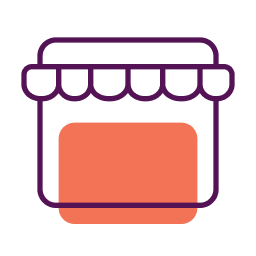You just closed on a new business loan, and now you’re sitting back for a rare minute of down time you have as a business owner. You turn on the news and see the headline: “U.S. Federal Reserve is Considering Raising Interest Rates.”
To business owners who have been through the process of securing financing before, “raising interest rates” does not sound good.
But what exactly does it mean for you?
An increase in the rate set by the Federal Reserve will, sooner or later, have an affect on the economy and as a result, on your business. It is a good idea to understand what a rate hike means for your business, and identify moves you can make to tilt the odds in your favor before you start to feel the effects.
What is the Federal Reserve and the Federal Funds Rate?
The Federal Reserve, or the Fed, is the central bank of the United States, created to bring a safer, more formal organization and stability to the U.S. financial system.
Amongst the many duties of the Federal Reserve is dictating monetary policy, or influencing the size of money supply. They do this predominantly through the use of open market operations, or the buying and selling of U.S. government securities to influence the amount of credit and price of that credit (interest rates) in the U.S.
target for the federal funds rate — the rate at which banks borrow from each other — not the actual rate.
After the target rate has been set, the Fed’s goal is to try to reach the federal funds rate target through open market operations, or by buying and/or selling government securities.
What is the relationship between this rate and economy?
When the federal funds rate is low, it is cheap for banks to borrow from each other. Banks will take those extra savings as a prerogative to lend to more consumers and businesses. Consumers and businesses then spend more, the economy heats up and the inflation rate rises.
(This also is a time when dealing with banks is not as rewarding for savers, who are getting almost no return for money they put in the bank — when the borrowing rate between banks is cheap, banks don’t want to pay their customers — consumers and small businesses — much return on savings accounts.)
What about when the federal funds rate is high? Well, the opposite will be true. As rates rise, less people and businesses are able to borrow money, and because consumers and businesses are spending less, the economy slows and the inflation rate decreases.
What is the rate right now?
Right now the target rate is sitting at a low 0 – 0.25%. There is nowhere for the rate to go but up.
During the Great Recession back in 2008, the Federal Reserve lowered interest rates to their current low level. The U.S. has not seen a rate increase since the start of the recession, meaning for the past 7 years the Fed has been working to speed up the economy and facilitate banks to lend to more small businesses and consumers.
What will the effect be on small businesses if the Fed decides to increase interest rates?
Take a deep breath and relax, because if the Fed increases the rate in the coming months, the effect will most likely be negligible. Major news sources claim that the FOMC is considering raising the target rate only by a fraction of a percentage, which will have only a small effect that will not be felt overnight.
However, keep a close eye on the Fed’s future decisions regarding the federal funds rate, because if the rate rises again and again, there may be an effect sooner or later in the following ways:
Market gyrations: Because it’s been a long time since the Fed has raised rates, when it finally does the markets are likely to react, and the reaction might be temporarily erratic. That doesn’t mean you need to take a knee-jerk reaction and pull your investments out of stocks, for example, but it is a good reminder to review your investments, both business and personal to make sure you understand the level of risk involved.
Interest rates on credit cards and home equity lines of credit: Many personal and business credit cards, as well as home equity lines of credit, have a variable interest rate that is tied to the U.S. prime rate. When the federal funds rate increases, the prime rate increases as well, meaning the interest rate on your credit cards will rise.
Rates on business loans: Many small business loans allow the borrower the option to choose a fixed or variable rate. If you are considering getting a business loan, inquire with lenders about the option of having a fixed rate. If you have a loan already and signed onto a variable rate, it might be a good time to inquire with your lender about locking in a fixed rate before the Fed’s interest rate hike.
Availability of business loans: Banks will see your business as more of a risk when the growth of the economy is slowing. Interestingly, big banks may become more willing to lend (as long as economy doesn’t completely fall off cliff) because they can make more on the spread when rates are higher.
Changing customer behavior: This is more of a longer term effect to take into account. Above we outlined how an increasing federal funds rate will eventually cause the economy to slow, and consumers will spend less. Take a minute to think about what your cash flow situation might look like if business slowed, and plan your financial forecasts accordingly.
So what should I do when the rate changes?
When interest rates are low is a good time for companies to consider expansion — the cost of additional capital needed for expansion will be lower, and more money in the economy means the potential for more customers at your storefront. Again, interest rates are low right now and will be relatively low for some time even if the Fed hikes the rate in the coming months, so you still have time. If you’ve been putting business renovations or growth opportunities on the back burner, now might be a good time to consider those.
Depending on the nature of your business, a high federal funds rate can indicate a good time to start saving. Once rates rise well above the current level, banks will start to charge more for borrowed money and offer more via interest rates on savings accounts. This is great news for anyone with a bank account, as you will see your savings start earning more each year. A good time to put some savings in your business’ bank account will be when the interest rate is high — you can save money for a rainy day that is earning interest while it sits in your account.
The bottom line is to rest easy. Rates will not skyrocket overnight, and you and your business will not likely feel next-day effects. However it is a great idea to think critically about the longer term, and how you might be able to combat negative effects while taking advantage of positive ones.
This article was originally written on November 18, 2015 and updated on November 3, 2016.


Have at it! We'd love to hear from you and encourage a lively discussion among our users. Please help us keep our site clean and protect yourself. Refrain from posting overtly promotional content, and avoid disclosing personal information such as bank account or phone numbers.
Reviews Disclosure: The responses below are not provided or commissioned by the credit card, financing and service companies that appear on this site. Responses have not been reviewed, approved or otherwise endorsed by the credit card, financing and service companies and it is not their responsibility to ensure all posts and/or questions are answered.